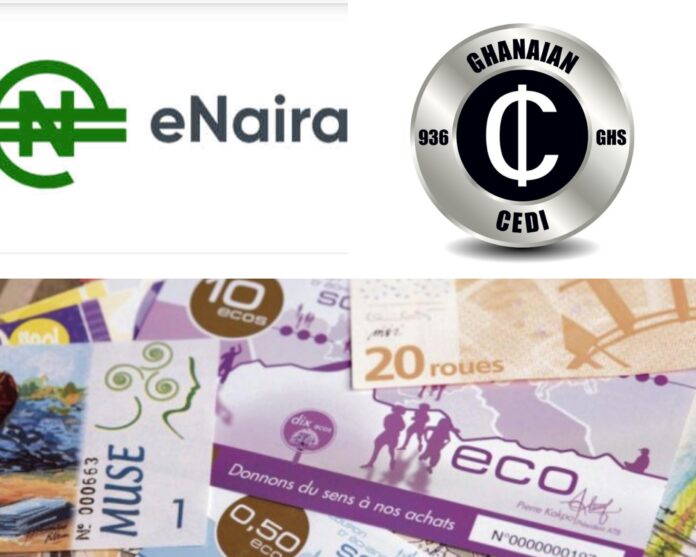It’s been twenty years of hard work towards a common currency in West Africa. 15 nations, under the umbrella of the Economic Community of West African States came together with a goal: create a single currency, known as “Eco.” Now, with the advent of E-naira and E-cedi, West Africa’s Eco currency plan still remains a pipe dream.
Conceived in 2003, its launch has been postponed for quite a number of times: 2005, 2010, 2014. What’s worse, the project has been tampered by the Central Bank Digital Currency (CBDC) emerging in Ghana and Nigeria as E-cedi and E-naira respectively.
Nigeria and Ghana are the first two countries to undertake its issuance in Africa, although Rwanda, Kenya, South Africa and Tanzania are following suit.
At the moment, it remains unclear whether the Nigerian and Ghanaian government will abandon their CBDC projects for the Eco. Not only that, there is an haunting reality that if the CBDC’s become successful, other countries will follow suit. Then, Eco will be hushed and forgotten.
Although the new Eco will enhance trade, assure prosperity and bring about economic investment within countries, its criteria is seen as “practically impossible” for most, if not all the West African bloc. Now the criteria includes curbing inflation, budget deficits, reserves and exchange rate stability. Another difficult criteria is the debt-to-Gross Domestic Product (GDP) ratio, one which most countries deem impossible.
As Eco strives to lower transactional costs, facilitate payments across ECOWAS, build monetary bridges across barriers, what’s most saddening is the timing of the E-naira and E-cedi, both at close range and towards the end of the year.
Even economic giants like Nigeria, Ghana and Ivory Coast have consistently failed to meet the criteria like keeping inflation below 3%. Sadly, most African countries aren’t even economically aligned. The big question still remains: “Will Eco ever see the light of day?”

